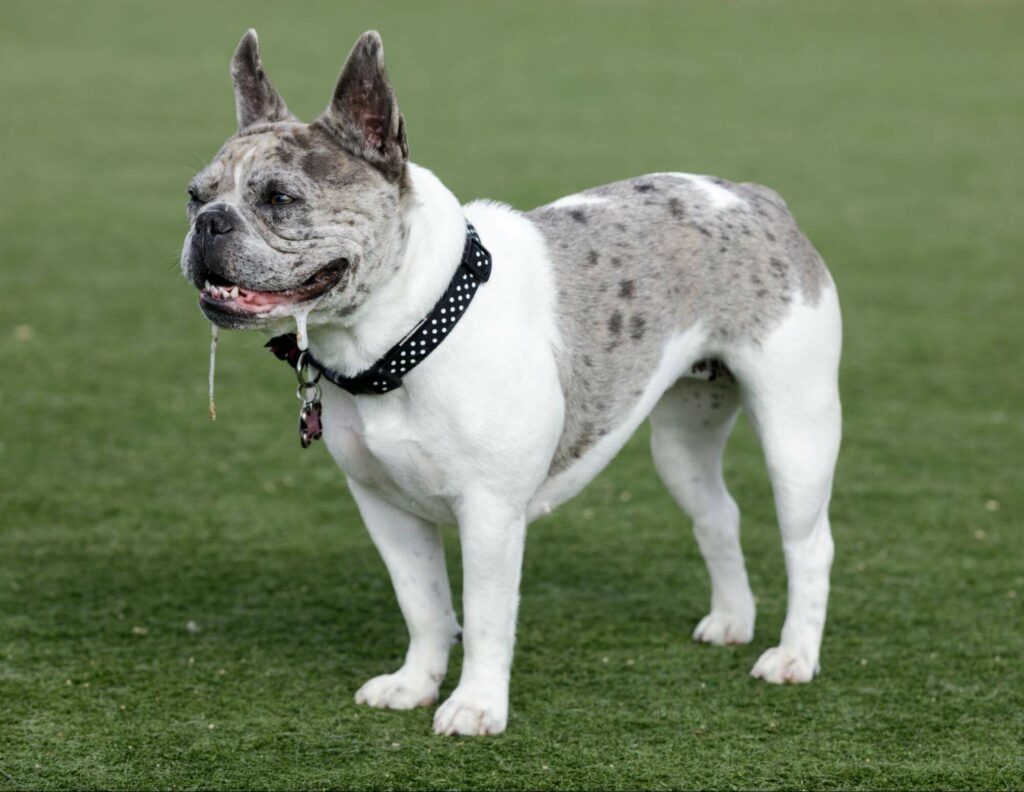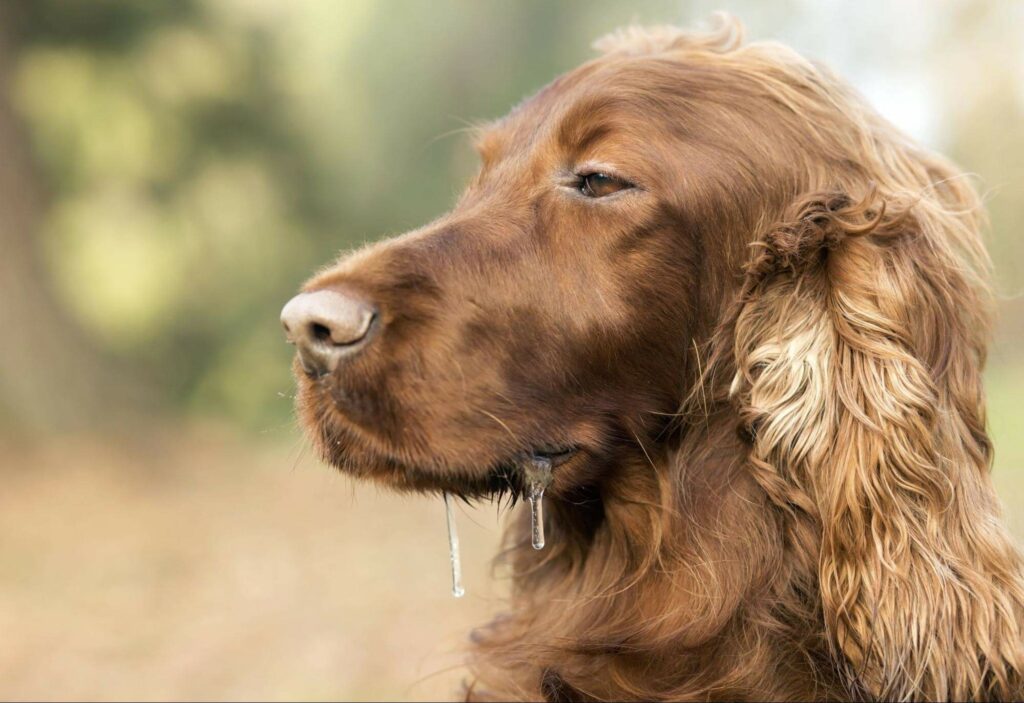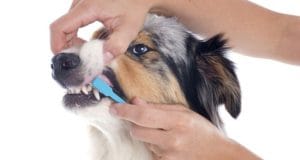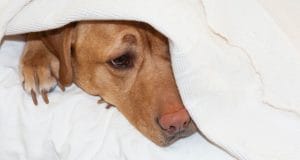Dogs are beloved for many reasons, from their unwavering loyalty to cute little tails. But of all the traits you love about your dog, her tendency to drool a lot probably isn’t one of them.
You should be willing to forgive your pet’s drooling as a natural function that helps him eat and digest food. If your dog seems to have more saliva than usual, it could be a sign of a problem, and it’s better to be safe than sorry. Reach out to your vet to talk about your dog’s excessive drooling.
Below are listed some common causes and treatments of excessive drooling or hypersalivation.
Foreign Objects
When your dog starts drooling more than usual, the first thing you should do is check inside the mouth. Look at the tongue, teeth, and gums for objects like splinters or shards of bones. When giving your dog a bone to chew as a treat, be mindful that the bone will not break evenly. Instead, it will splinter, and shards of bone will enter the mouth. If there are no signs of anything suspicious, visit a vet as they might be able to help tell if something has become stuck while eating.
Dental Issues
If tartar builds up inside your dog’s mouth, it can cause excessive drooling. You may be able to identify problems with tartar build-up by checking the teeth for browning and gums for redness, swelling, or bleeding. Consult with your pet care provider if you think that issues with your dog’s teeth or mouth may be causing extra salivation. Your vet can check your dog for dangerously cracked teeth, mouth diseases, growths, and ulcers and recommend appropriate treatments, such as extraction, a professional cleaning, or routine brushing.
Heatstroke
It probably seems counterintuitive, but drooling is a symptom of heatstroke. If you’re worried that your furry friend is spending too much time in the sun and notice common signs like drooling, lethargy, and unresponsiveness, heatstroke may be the culprit. Since this is something that can kill your dog, you must take it very seriously and get her to the vet immediately. You can help prevent heatstroke by ensuring your dog always has easy access to water and not leaving her out in the sun on hot days or alone in a parked car.
Anxiety
Drooling can be brought on from anxiety, which can develop from visits to the vet for shots, unpleasant procedures, or stressors. Dogs are intuitive and will pick up our habits. So if they are a fan of going for a check-up, this could bring on anxiety, leading to additional drooling. Usually, the excess salivation will cease once the stressor is removed or the visit to the vet is over.
Disease or Cancer
The causes of salivation are many. However, one alarming condition in older pets is when a mass is located in the mouth, which could be cancer- in some cases, drooling may also indicate liver disease and kidney failure!
Hypersalivation
Hypersalivation is a condition caused by various factors, including infections and allergies. Suppose you notice your dog drooling more than usual or experiencing unusual thirst during activities such as walks on hot days when they generally pant heavily to cool off. In that case, visit the vet right away.
Oral Infections
If your dog develops a sinus or throat infection, this can cause more drooling than usual. Common signs of diseases include pus and bad breath. Talk to your vet if you think your dog may have an infection.
Plant Consumption
The list of poisonous plants to dogs is long, and some common ones include chrysanthemums, tulips, and azaleas. The critical thing you need to know is if your pup has eaten any part from one or all three types, which could cause excessive drooling. You’ll want to seek veterinary care right away so they can figure out what happened and how to treat the symptoms.

Dog Breeds Play a Role
You may not think that a dog’s drooling and slobbering is something you can control, but you may want to consider it when you choose a dog. If you are not a fan of constant salivation, check out these breeds before bringing home a furry friend.
Types of Dogs that Drool the Most
- Dogue de Bordeaux
- Bloodhound
- Bulldog
- Newfoundland
- Neapolitan Mastiff
- Bernese Mountain Dog
- Bullmastiff
- Boxer
- Great Dane
Types of Dogs that Drool the Least
- Corgi
- Leonberger
- Papillon
- Basenji
- Chihuahua
- Cavalier King Charles Spaniel
- Siberian Husky
- Shiba Inu
How to Reduce Drooling
Drooling is a common problem among dogs and can often be quite messy. There are a few ways to reduce how much your dog drools. One way is to tie a bandana around the neck, which will absorb the saliva that falls, keeping your floors, furniture, and outfits dry. Another way is to dry their mouth after walking or running. Dogs tend to drool more when excited, for example, when they see food. Try laying a washable rug or towel near their food bowl to catch the drool. And finally, you can talk to your vet about homeopathic remedies that may suppress saliva production, like lemon extract. Essential oils are popular, but many are toxic to your pup. Please research and consult with your pet care provider before administering or diffusing any oils in your home.
Commonly Questions About Dog Drool
What Are the Most Common Reasons Dogs Drool Excessively?
Oral disease like tooth decay, tar build-up, gum inflammation, or tumors in the mouth or throat is one of the most common reasons for extra salivation.
Are There Any Health Concerns Associated with Excessive Drooling in Dogs?
It is essential to pay attention to your pet and monitor what is normal for them. If you notice excessive saliva, reach out to your veterinarian to determine the cause.
What Should I Do if I Think My Dog is Drooling Because of a Health Problem?
If you’re concerned about the amount of drool coming from your dog, please visit a vet. Extra salivation can be a sign of dental issues or other problems.
How Can I Tell if My Dog is in Pain Due to Excessive Drooling?
The dog’s drooling could signify pain in the stomach or nausea. Excessively gagging and churning of the mouth means there may well have been an issue with distress, leading to extreme discomfort for your pet.
What are Some Tips for Keeping my Dog’s Mouth Healthy and Free From Bacteria?
You might not think about your dog’s oral health as often as their physical health. However, taking care of your dog’s teeth and gums is vital for keeping them healthy. Brushing your dog’s teeth every day is the best way to prevent plaque and tartar build-up.











